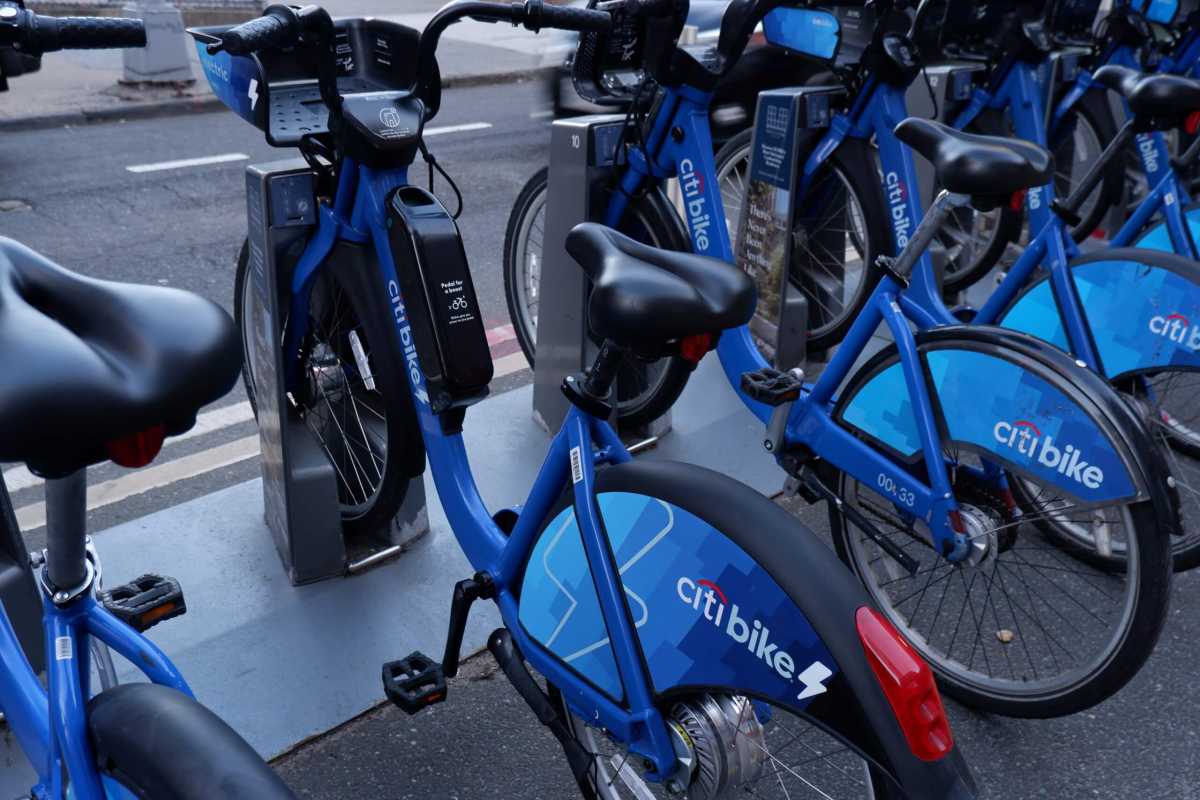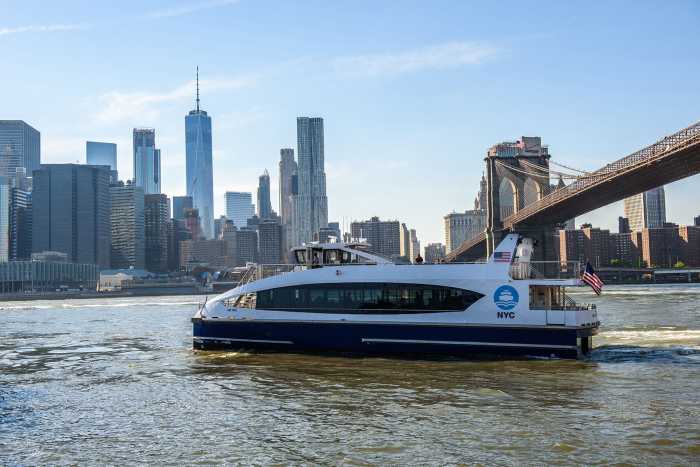The city’s largest purveyor of bank-sponsored rental bikes is now offering battery-powered bicycles — for the second time — after first pulling the juiced-up bikes, which had a penchant for sending riders flying over the handlebars and bursting into flames, last spring.
Lyft, a rider share company that owns Citi Bike, rolled out a “few hundred” pedal-assist bicycles on Feb. 19, in a move that city transportation officials hailed as a positive step towards encouraging more New Yorkers to embrace cycling.
“We are confident that the return of these sought-after bikes will allow our partners at Lyft to build on the record-breaking ridership Citi Bike saw last summer — and will help even more people discover the joy and convenience of cycling in New York City,” said DOT Commissioner Polly Trottenberg.
The company first introduced the electric-powered bikes capable of reaching speeds of up to 18 miles per hour in August 2018, but removed them last April after some riders claimed they went soaring over the handlebars in an attempt to break. One social media user reported fracturing his arm while trying to stop short on one of Citi Bike’s pedal-assisted rentals.
I didn't report it, but I fractured my arm flipping over the handlebars when trying to brake for a pedestrian in the bike lane. Unfortunate to hear but I feel better knowing I wasn't the only one this happened to. And yes I know how disc brakes work…
— elliott romano (@ElliottRomano) April 14, 2019
And if that wasn’t bad enough, the electric bikes had a slight tendency to burst into flame, as demonstrated when some Citi Bike-mounted batteries burst into flame at a charging station in Gowanus. Those defects were mirrored by rental bikes Lyft operated in California’s Bay Area in July, which also caught fire, leading the company to pull their West Coast E-bikes as well.
Lyft has since changed their supplier of batteries and now mounts their batteries closer to the rear of the bike.
They were supposed to bring the e-bikes back last fall, but were delayed because they wanted to ensure the new bikes were safe, according to a company statement.
The company in July announced a $100 million investment to triple the number of the blue bikes in the city, including an expansion into Brownsville, Crown Heights, Prospect Lefferts Gardens, East Flatbush, Windsor Terrace, Ditmas Park, Kensington, and Sunset Park, along with installing additional docks in Park Slope and Bedford-Stuyvesant.
The company introduced a new pricing model in January, which changes the surcharge for the e-bikes from a flat $2 to a per minute price, with 10 cents per minute for annual members, 5 cents for members of the company’s reduced fare program for public housing residents and food stamps recipients, and 15 cents for non-members.
E-bike surcharges are capped at $2 for members riding 45 minutes or less when their journeys start or finish outside Manhattan.
The batteries last for about 30 miles and workers swap them out whenever they’re out of charge, much like Revel’s scooter rental service.
In Dumbo, where some of the first e-bikes were stationed, some Brooklynites said they’ll still use the “classic” Citi Bikes for the lower price and the workout.
“I still feel like, for the price difference, I’d rather just take the exercise and save the money,” said John Aner. “I tried them four or five times the last time around and they really didn’t do much for me and they still don’t.”
The owner of a local bike shop celebrated the new battery-powered two-wheelers, saying the Citi Bike service in general has done a great job encouraging new riders, who often choose to purchase their own bike in lieu of relying on the rentals.
“As a bike shop owner, I use Citi Bike and love them,” said Ilya Nikhamin, the owner of Red Beard Bikes. “They’re fun!”

























